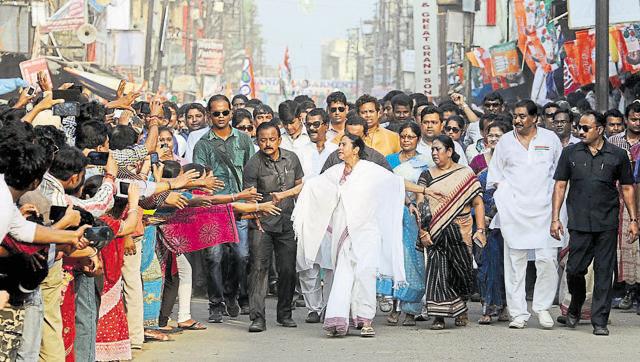The BJP’s electoral appeal in the absence of any perceptible Modi wave and the Congress’s tenacity against a spirited attack on one of its last fortresses will be under test when people in Assam’s 65 constituencies, and 18 in West Bengal, vote in the first phase on Monday.
Of the four states and a Union Territory going to the polls in the next six weeks, the BJP has its eyes on Assam where it fancies a chance to oust the Congress that has been ruling the state for the past 15 years.
About 9 million voters in tea-growing upper Assam and Barak Valley, the state’s southern part bordering Bangladesh, will determine the BJP’s fate. The party did well in these two regions in the 2014 Lok Sabha elections. The momentum it gains in these belts could carry it through the April 11 elections for 61 seats in Muslim-dominated lower and central Assam.
Locked in a close contest with Left parties in Kerala, the Congress seems precariously poised in Assam.
Polling in 18 constituencies in Maoist-hit districts of West Midnapore, Purulia and Bankura in West Bengal could be the barometer for chief minister Mamata Banerjee of the Trinamool Congress to assess whether last week’s tragic flyover collapse in Kolkata has any adverse resonance outside the city.
It will also test her claims about restoring peace and development in this region where, she said, 400-500 people used to be killed every year before she came to power in 2011.
This April-May polls are the first since the BJP stormed to power at the Centre in May 2014 that the party is not seeking votes directly in the name of Narendra Modi.
The Prime Minister has campaigned for his party but the focus has been on local issues — illegal Bangladeshi immigrants and corruption in Assam; lack of development and the Narada bribery scandal involving ruling Trinamool leaders in West Bengal.
On May 19 when votes are counted, the results will show how much the BJP depends on a personality cult for electoral success.
The results will also set the stage for presidential elections in 2017. Party position in every assembly matters to the NDA to get the Head of State of its choice because the President is elected by an electoral college, comprising parliamentarians and MLAs.
The RSS, the BJP’s ideological patron, is said to be keenly watching the numbers in different assemblies. As it is, the BJP along with its allies rules 12 states, excluding Jammu and Kashmir where the PDP-BJP government will be formed on Monday, but may not have the requisite numbers to force a candidate of its own choice.
The assembly elections will have a bearing on the Centre because a poor BJP show may embolden rivals to further oppose pending, key reforms.
Projections suggest the NDA’s tally, with support from the AIADMK and seven nominated members, will be 86 in the Rajya Sabha by August — against the combined strength of 87 of the Congress-led grouping. The NDA will need smaller parties for the majority figure of 123 in the 245-member Upper House of Parliament.
The AIADMK has been a reliable NDA supporter in Parliament, except for the goods and services tax bill. No doubt, BJP strategists are secretly wishing a thumping victory for J Jayalalithaa in the assembly polls.
[Source:- Hindustan Times]




